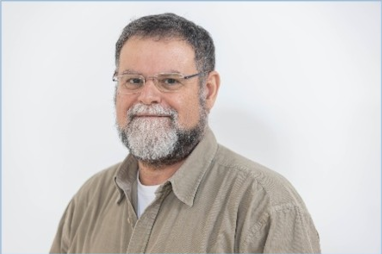Open lecture as part of a mentoring visit by dr Eli Zaady (Research & Development Center, The Ministry of Innovation, Science and Technology)

16 09 2025
Category: Events, I.1.1/IV.1.1
Please join us for an open lecture by dr. Eli Zaady (Research & Development Center, The Ministry of Innovation, Science and Technology) entitled “The role of biocrusts as ecosystem engineers in dry environments”, prepared as part of the mentoring visit under Action I.1.1/IV.1.1 “Mentoring Programme”.
Biological soil crusts (biocrusts) fit well within the critical zone concept. This concept defines the crucial zone as the heterogeneous, top few centimeters near the surface, where the lithosphere, atmosphere and biosphere interact. In this zone, living organisms regulate the natural habitat and determine the availability of life-sustaining resources. Biocrusts contribute by: a) promoting nearly all inputs and outputs (such as gases, nutrients, and water) between layers above and below the soil surface; b) forming a zone of high nutrient deposition, transformation, and availability; and c) affecting vascular plant communities by facilitating the movement of nutrients and water, especially in drylands with sparse perennials and herbaceous vegetation.
Organisms within biocrusts often function as keystone ecosystem engineers, playing a critical role in the vital zone by colonizing the upper soil layers of drylands worldwide. They are composed of poikilohydric photoautotrophs (cyanobacteria, algae, lichens, and mosses), as well as heterotrophs, including microbes (bacteria and archaea) and fungi. They play central roles in the soil surface structure and functioning in dryland ecosystems, regulating soil erosion and development, influencing global biogeochemical cycles, and are producers that feed other organisms in the soil food web. Biocrusts are vital bio-indicators for ecosystem processes and integrity. Their ecosystem services include climate regulation, air quality, soil fertility, water regulation, erosion control, and biodiversity. During the lecture, Eli Zaady will focus on biocrust management as part of socio-ecological activities.
Eli Zaady is a soil agroecologist, currently a research scientist at the Katif Research & Development Center, Ministry of Innovation, Science, and Technology, Israel. He was previously a Senior Lecturer at Ben-Gurion University of the Negev and then a Senior Researcher and Director of the Department of Natural Resources at the Volcanic Institute, Ministry of Agriculture.
In his research, Eli Zaady focuses on the northern Negev, addressing topics such as biological soil crusts, soil–flora–fauna interactions; grazing in both open landscapes and afforested zones; grazing in irrigated and organic-enriched agro-systems; ecological restoration (soil stabilization and erosion prevention); biogeochemical cycling of nitrogen and carbon in desert systems; nitrification processes; mechanisms of Aeolian erosion; micromorphology and chemistry of atmospheric particles; monitoring pesticide movement from cultivated land to adjacent natural areas, and biogeodiversity in Negev rangelands.
Eli is an author and co-author of over 130 scientific articles, including several in leading journals such as Nature and Science, with approximately 30 publications on the topic and 16 book chapters. In 2017, he was selected as Researcher of the Year at the Volcanic Research Center.
The lecture will take place on Monday, 22 September 2025 at 10:00 in the Room 0.36 (Miejsce Dobrych Spotkań) at the Biological and Chemical Research Centre, University of Warsaw.